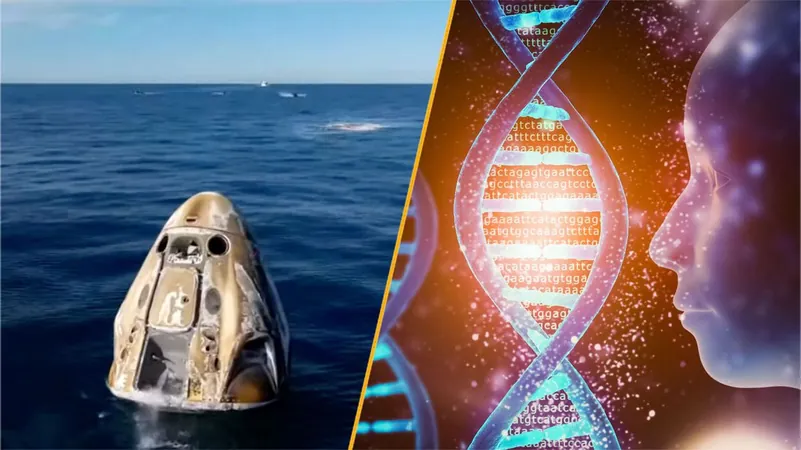
Astronauts Return After Lengthy Space Adventure and Groundbreaking Discoveries About Human Ancestry
2025-03-22
Author: Daniel
Astronauts' Extended Mission in Space
This week in science news, the headlines were dominated by an unexpected saga: the return of two NASA astronauts who faced an extended mission in space longer than initially planned. Astronauts Butch Wilmore and Suni Williams returned home after a staggering 286 days aboard the International Space Station (ISS). Their mission was launched on June 5, 2024, but complications surfaced early on, including helium leaks in their Boeing Starliner spacecraft, resulting in an extended stay that significantly exceeded the original eight-day plan.
Despite the media portrayal of being “stranded” in space, Wilmore and Williams conveyed a different sentiment in an interview with CNN. They emphasized the extensive preparations made for potential mission extensions. "We come prepared, we come committed. That is what your human spaceflight program is: It prepares for any and all contingencies that we can conceive of,” Wilmore explained. Their return via a SpaceX Dragon capsule was orchestrated safely and meticulously, underscoring NASA's commitment to astronaut safety.
Groundbreaking Discoveries in Human Ancestry
In exciting evolutionary science, researchers have made a groundbreaking discovery regarding a mysterious group of human ancestors. A recent study employing a novel modeling approach called "cobraa" traced the lineage of modern humans (Homo sapiens) back to a previously unknown population. Approximately 1.5 million years ago, this enigmatic group diverged from our ancestors, later intermingling with them about 300,000 years ago. This unknown ancestry not only contributed around 20% of our DNA but may have played a role in enhancing cognitive functions.
Aylwyn Scally, a geneticist from the University of Cambridge and co-author of the study, remarked on the significance of these findings. "The fact that we can reconstruct events from hundreds of thousands or millions of years ago just by looking at DNA today is astonishing and indicates that our history is far richer and more complex than we imagined."
Rethinking Dark Energy
On the cosmic front, astronomers are suggesting a potential reevaluation of our understanding of dark energy, based on new data from the largest-ever cosmic map. This research, which analyzed nearly 15 million galaxies and quasars across an 11 billion-year span, raises intriguing questions about the nature of dark energy—currently defined as a constant force propelling the universe's accelerated expansion. There are indications that this force might be weakening, prompting scientists to reconsider long-standing cosmological models.
Innovations in Medical Technology and AI
Moreover, several innovative breakthroughs were reported this week in the realm of medical technology and artificial intelligence. New blood tests for cancer diagnosis, promising advancements in AI’s capabilities, and ongoing explorations of Antarctica's ice-free areas broaden our understanding of health and environmental science.
Conclusion
As we explore the wonders of our universe and the mysteries of our ancestry, one thing remains clear: the frontiers of science are continuously pushing the boundaries of human knowledge. Stay tuned for more thrilling discoveries in the near future!

 Brasil (PT)
Brasil (PT)
 Canada (EN)
Canada (EN)
 Chile (ES)
Chile (ES)
 Česko (CS)
Česko (CS)
 대한민국 (KO)
대한민국 (KO)
 España (ES)
España (ES)
 France (FR)
France (FR)
 Hong Kong (EN)
Hong Kong (EN)
 Italia (IT)
Italia (IT)
 日本 (JA)
日本 (JA)
 Magyarország (HU)
Magyarország (HU)
 Norge (NO)
Norge (NO)
 Polska (PL)
Polska (PL)
 Schweiz (DE)
Schweiz (DE)
 Singapore (EN)
Singapore (EN)
 Sverige (SV)
Sverige (SV)
 Suomi (FI)
Suomi (FI)
 Türkiye (TR)
Türkiye (TR)
 الإمارات العربية المتحدة (AR)
الإمارات العربية المتحدة (AR)